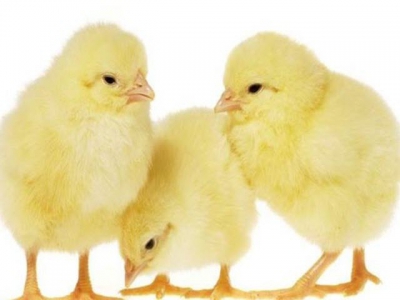Roosters play role in chick development

Embryo development of egg-type chickens affected by not only hen but also rooster and incubation temperature.
Embryonic development in birds has been assumed to be totally dependent on egg composition, which is, in turn, determined by the female (hen), according to the Adaption Physiology group at Wageningen University in the Netherlands.
However, recent research the group conducted in collaboration with Hendrix Genetics demonstrated that the male (rooster) also plays a role in egg composition and embryonic development. Additionally, embryonic development is affected by the temperature during the incubation process, an announcement from Wageningen said.
Consequently, optimal embryo development should consider not only the hen and the incubation temperature but also the rooster from which the embryo originates, the research group said.
During the study conducted with laying hens, eggs originating from the same dam line but from two different sire lines were incubated, and egg composition and embryonic development were investigated. Eggs of the same egg size tended to differ in yolk size between the two sire lines, which suggest that the male appears to influence yolk production by the female. This might be related to the sexual attractiveness of the male, as demonstrated in more dominant behavior, the researchers suggested.
During incubation, embryonic heat production was determined by measuring oxygen consumption and carbon dioxide production. Embryos in eggs with the larger yolk produced more heat, which might suggest that these embryos are developing faster. Chicken quality at the moment of hatching was also affected by the sire line, Wageningen reported.
The research revealed that embryonic development and chicken quality at hatching are affected by the temperature during incubation as well. For broiler-type chickens, this has been demonstrated frequently, but the current research demonstrates that this also holds true for layer-type chickens, the university said.
A higher incubation temperature between day 14.5 of incubation and hatching increased embryonic metabolism and resulted in poorer chicken quality at hatching. This was reflected in lower utilization of the yolk, smaller heart sizes and smaller intestine sizes, according to the researchers.
Related news
 Chickens should eat their greens: broccoli may improve egg yolk color
Chickens should eat their greens: broccoli may improve egg yolk color Adding levels of broccoli byproduct meal to the diets of laying hens may support bird intake, weight and egg production while improving egg yolk color
 Poultry research farm expansion increases availability, capacity
Poultry research farm expansion increases availability, capacity APR research farm will operate independently, serving entire poultry industry.
 The impact of vitamins on layers facing heat stress
The impact of vitamins on layers facing heat stress Adding vitamins A and E to the diets of laying hens exposed to high temperatures can support egg production, bird health and feed conversion, say researchers.